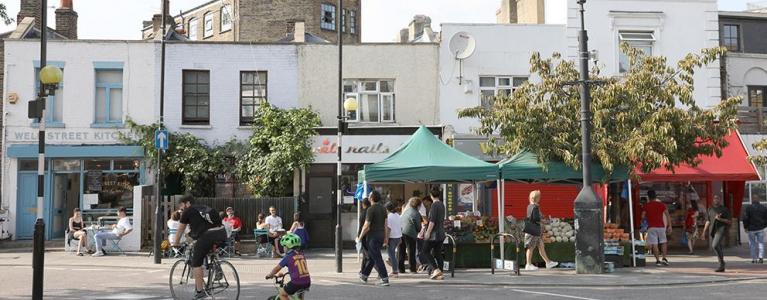
The Government must amend the Levelling Up and Regeneration Bill to avoid having a detrimental impact on local plans and on the Mayor’s ability to create ambitious planning policies for London, following an investigation by the London Assembly.
An investigation into the Bill and other proposed planning reforms was carried out by the London Assembly Planning and Regeneration Committee, focussing on the national reforms and how they would work for London.
Ahead of a debate on the Bill in the Lords, the Committee has today published a report highlighting that some of the reforms could prevent the London Plan and local plans from meeting local needs.
The Committee is concerned about the introduction of National Development Management Policies (NDMPs), which would be determined by Government and have primacy over local plan and London Plan policies. Planning policies set at a local level and a London level would not be able to set different approaches or targets from those set out in the NDMPs.
The Committee supports the ambition of increasing public participation in local planning matters, but it is “not content with the limited level of detail set out by the Government on how all of these reforms would function”, and how they would result in a more accessible planning system which meets local needs.
The Committee has set out 11 recommendations in the report, including:
- The Committee has serious concerns regarding the Government’s proposal for National Development Management Policies (NDMPs). The Committee does not support the measure in the Bill stating that any conflict arising between a local plan and a NDMP must be resolved in favour of the NDMP. The Committee believes that this measure should be either removed from the Bill, or amended to exclude London and other areas which have a joint spatial development strategy.
- The Government should confirm that the NDMPs will set minimum standards rather than absolute standards. The Government’s approach stating that local plans are not allowed to contain policies on the same areas as the NDMPs should also be changed, to ensure that local plans can meet local needs whilst avoiding unnecessary duplication.
- The Committee welcomes the ambition of Neighbourhood Priority Statements to simplify and widen access to neighbourhood planning; including the protection of small business and localities to aid resilience and recovery. More details are needed from the Government on how it will address the most significant challenges facing neighbourhood planning. Therefore, the Government should set out how it will improve accessibility of funding and contribute to capacity building and technical support for neighbourhood planning groups.
- The Government should provide further detail on how the street votes proposal would work. This should have a detailed projection of how the street votes approach would deliver more homes, including the need for affordable homes as set out in local plans, and what the role for local authorities would be. It should also include details on how the street votes approach would work on estates and on streets with mixed building typologies.
- The GLA should develop detailed analysis on how the Infrastructure Levy could be delivered in a way that responds to the specific conditions in London of high variation in land value and need for affordable housing. This analysis should be incorporated into the Government’s future consultation on the details of the Infrastructure Levy.
Chair of the London Assembly Planning and Regeneration Committee, Sakina Sheikh AM, said:
“We have a responsibility to ensure Londoners can influence their communities, and the planning process plays a vital role in helping us to achieve this.
“We call for amendments to the Bill to protect the ability of London boroughs and the Mayor to set plans that consult local people and meet local needs.
“We want London to be able to set ambitious planning targets to adapt to the challenges we are facing, and the Bill could undermine the Mayor’s ability to do just that.
“We also urge the Government to provide more detail on their reforms around street votes and neighbourhood planning, so that local people and local authorities can maximise the potential of their neighbourhoods and boroughs.
“By increasing participation in planning across London, we will see a city which reflects the needs of Londoners, with housing that is suitable for everyone and a planning process that enables local people to shape their communities.”
Future of planning reforms.pdf
Notes to editors
- The embargoed report is attached.
- Sakina Sheikh AM, Chair of the Planning and regeneration Committee, is available for interview.
- Find out more about the work of the Planning and Regeneration Committee.
- As well as investigating issues that matter to Londoners, the London Assembly acts as a check and a balance on the Mayor.
For more information, please contact Emma Bowden in the Assembly Media Office on 07849 303897. For out of hours media enquiries please call 020 7983 4000 and ask for the Assembly duty press officer.